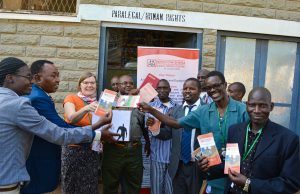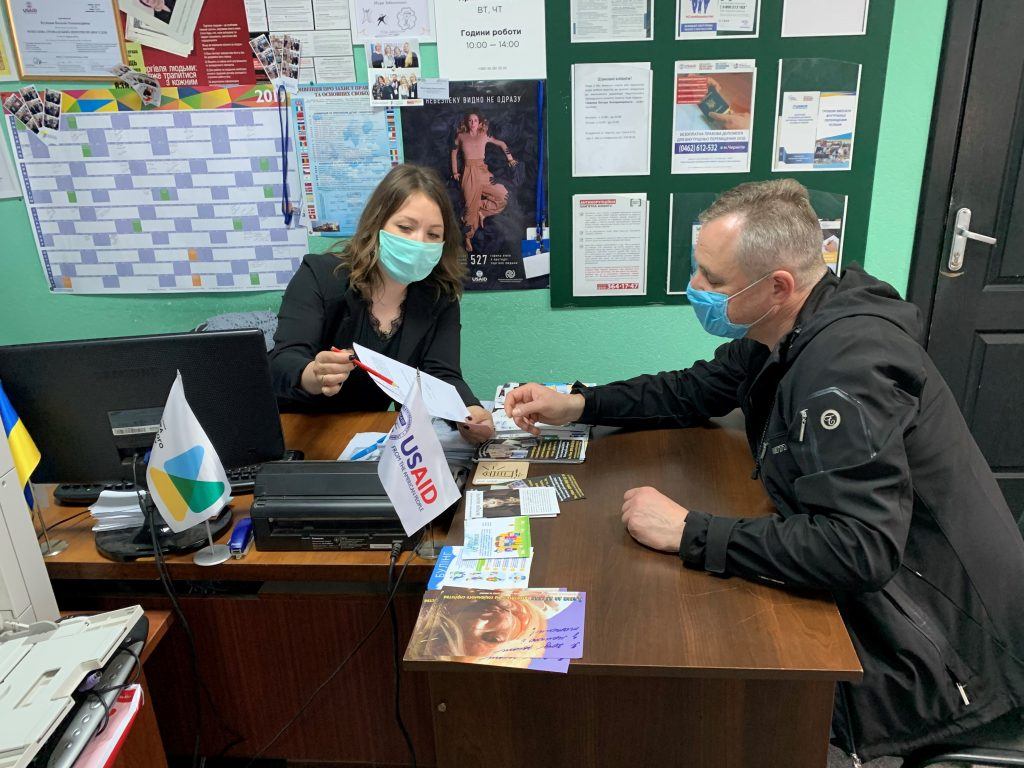Community Justice: Putting People First
Justicia comunitaria: Poniendo a la gente primero
Community justiceTo address barriers that prevent citizens from having their justice needs met, OGP participating governments are working to expand transparency, accountability, and inclusion into all systems of justi... models take many forms, but they’re rooted in one thing: the importance of community involvement in justice system processes. From community-based justice centers and the use of community paralegals to alternative systems rooted in culture and tradition, community justice models are a great way for the open government community to approach justice reform. Their design is a collaborative process between government, civil society, and communities, improving civic participation in justice processes for individuals with legal needs.
 OGP Coalition on Justice The OGP Coalition on Justice is a group of OGP members, civil society organizations, and other national and international partners advancing a people-centered approach to justice through their OGP action…
OGP Coalition on Justice The OGP Coalition on Justice is a group of OGP members, civil society organizations, and other national and international partners advancing a people-centered approach to justice through their OGP action… Over the past few years, promoting transparent, accessible, and inclusive justice systems has become an increased focus in the open government community. In 2019, the Open Government Partnership (OGP) formed the OGP Coalition on Justice to bring together its members co-creating or implementing justice commitments in their action plans to share ideas and approaches. Here are a few things we’ve learned from the community along the way:
People often prefer to resolve their problems through community-based justice rather than the formal justice system. Community-based justice tends to be more affordable and accessible and can resonate better with the local culture. A 2019 survey found that only 10% of Kenyans use the formal justice system. At a recent meeting of the OGP Coalition on Justice, Annette Mbogoh from the legal advice organization Kituo cha Sheria noted it is vital to harness already existing practices, like the legal framework in Kenya that has enabled the adoption of community-based justice into the formal system, and ensure these practices comply with human rightsAn essential part of open government includes protecting the sacred freedoms and rights of all citizens, including the most vulnerable groups, and holding those who violate human rights accountable. T... principles. She shared that in her experience, women in particular prefer to use community-based justice. From an open government perspective, community justice models can improve the justice system’s responsiveness to people’s problems and appeal to populations that are less comfortable with formal processes.
From an open government perspective, community justice models can improve the justice system’s responsiveness to people’s problems and appeal to populations that are less comfortable with formal processes.
Community justice models can alleviate the pressure on the overall justice system. If and where they are integrated into the justice ecosystem in a country, community justice models can expand accessibility to justice services to more people and contribute to peace and stability in communities. Community Justice Centers (CJCs) in Ukraine supported by the USAID New Justice Program are providing legal information and assistance, offering alternative dispute resolution services, conducting public outreach and awareness activities, and helping identify legal issues and mobilizing community resources to resolve them. While they are not courts and do not administer justice, CJCs cooperate with courts by providing consultations with parties about court procedures, raising awareness about the judiciaryWhile a majority of open government reforms occur within the executive branch, OGP members are increasingly taking on commitments to increase the openness of the judicial branch. Technical specificati... and providing mediation services to avoid costly litigation and reduce court caseloads.
The OGP co-creation process is an apt framework for discussing and designing a community justice mechanism that will address people’s problems. Community and local civil society organizations that provide justice services to the local population can bring their voice to the policy discussion based on lived experience. In the West Papua province in Indonesia, as part of an OGP commitment, the local ministry office and legal aidMore and better information about aid helps partner countries and donor institutions plan and manage aid resources more effectively, parliaments and civil society to hold governments accountable for t... providers are training priests, heads of tribes, and customary community leaders as paralegals and human rights complaints posts, so they can serve members of churches and communities nearby facing legal problems.
Within OGP, a discussion of community based justice models is a very relevant and timely one. Research shows that the pandemic has severely impacted justice systems and widened the justice gap. It has also exacerbated societal inequities that existed even before the pandemic, which continues unabated in many parts of the world. This is why future action must focus on renewing societal and social contracts, rather than resetting them. Community justice models – that are often more accessible to communities and more trusted by them to solve the problems that exist locally – can be part of the solution.
Thank you to David Vaughn of USAID’s New Justice Program, Annette Mbogoh of Kituo cha Sheria, and Masan Nurpian from the Indonesia Ministry of Law and Human Rights for their contributions at the OGP Coalition on Justice meeting in May 2021 that inspired this blog post.
Los modelos comunitarios de justicia pueden desarrollarse de diferentes formas, pero todos están fundamentados en un elemento en común: la importancia de la participación comunitaria en los procesos judiciales. Desde los centros comunitarios de justicia hasta el uso de asistentes legales comunitarios y los sistemas alternativos basados en las culturas y tradiciones, los modelos comunitarios de justicia son formas excelentes de promover el enfoque de gobierno abierto en las reformas del sistema judicial. Están diseñados con base en un proceso colaborativo entre el gobierno, la sociedad civil y las comunidades, por lo que mejoran la participación cívica en los procesos judiciales para las personas que tienen necesidades legales.
En los últimos años, la comunidad de gobierno abierto ha tomado mayor interés en promover sistemas judiciales transparentes, accesibles e incluyentes. En 2019, la Alianza para el Gobierno Abierto (OGP por sus siglas en inglés) creó la Coalición de justicia de OGP, la cual reúne a los miembros de la Alianza que se encuentran cocreando e implementando procesos de OGP con el fin de compartir ideas y metodologías. A continuación presentamos algunas lecciones que hemos aprendido de esta comunidad:
Es común observar que las personas prefieren resolver sus problemas a través de métodos comunitarios y no a través del sistema judicial formal. Los sistemas comunitarios de justicia tienden a ser más accesibles y a reflejar mejor la cultura local. En 2019 se aplicó en Kenia una encuesta que encontró que solamente el 10 % de las personas de este país utilizan el sistema formal de justicia. En una reunión reciente organizada en el marco de la Coalición de justicia de OGP, Annette Mbogoh de la organización de asesoría legal Kituo cha Sheria, comentó que es fundamental aprovechar las prácticas existentes. Tal es el caso del marco legal de Kenia, el cual ha permitido la incorporación de los sistemas comunitarios de justicia al sistema formal y asegurado que estas prácticas se apliquen en apego a los derechos humanos. Compartió que, en su experiencia, las mujeres en particular prefieren los sistemas comunitarios de justicia. Desde una perspectiva de gobierno abierto, los modelos comunitarios de justicia pueden mejorar la capacidad de respuesta de los sistemas judiciales, respondiendo a los problemas de las personas y llegando a grupos que no se sienten cómodos con los procesos formales.
Desde una perspectiva de gobierno abierto, los modelos comunitarios de justicia pueden mejorar la capacidad de respuesta de los sistemas judiciales, respondiendo a los problemas de las personas y llegando a grupos que no se sienten cómodos con los procesos formales.
Los modelos comunitarios de justicia pueden reducir la presión de los sistemas judiciales. Cuando se integran a los sistemas judiciales de los países, los modelos comunitarios de justicia pueden ampliar el acceso de los servicios judiciales a más personas y contribuir a la paz y a la estabilidad de las comunidades. Los centros comunitarios de justicia de Ucrania, con el apoyo del programa Nueva Justicia de USAID, están ofreciendo información legal y asistencia, presentando servicios alternativos de resolución de conflictos, llevando a cabo actividades de comunicación y sensibilización y ayudando a identificar problemas legales y movilizar recursos comunitarios para resolverlos. Aunque no son tribunales y no aplican la justicia, los centros comunitarios trabajan con los tribunales, ofreciendo consultas sobre los procesos judiciales, sensibilizando sobre el poder judicial y ofreciendo servicios de mediación para evitar los costos de los procesos de litigación y reducir la carga de trabajo de los tribunales.
El proceso de cocreación de OGP es un marco adecuado para discutir y diseñar mecanismos comunitarios de justicia para atender los problemas de las personas. La comunidad y las organizaciones de la sociedad civil locales que ofrecen servicios judiciales a la población local pueden incorporar su voz en la discusión de política con base en sus experiencias. Por ejemplo, en la provincia de Papúa Occidental de Indonesia, como parte de un compromiso de OGP, la oficina local del ministerio y un grupo de proveedores de servicios legales y asistentes legales están capacitando a sacerdotes, líderes tribales y comunitarios como asistentes legales y entidades de recepción de denuncias para atender a los miembros de las iglesias y comunidades cercanas que tienen problemas legales.
Al interior de OGP, la discusión alrededor de los modelos comunitarios de justicia es muy relevante y oportuna. Investigaciones demuestran que la pandemia ha impactado severamente a los sistemas judiciales y ampliado la brecha de la justicia. Además, ha exacerbado las desigualdades sociales que ya existían antes de la pandemia. Por ello, las acciones en el futuro deben enfocarse en renovar los contratos sociales y societarios, más que en reestablecerlos. Los modelos comunitarios de justicia, al ser más accesibles y de confianza de las comunidades para resolver los problemas locales, pueden ser parte de la solución.
Agradecemos a David Vaughn del Programa Nueva Justicia de USAID, a Annette Mbogoh de Kituo cha Sheria y a Masan Nurpian del Ministerio de Derecho y Derechos Humanos de Indonesia por sus aportes a la reunión de la Coalición de justicia de OGP de mayo de 2021 que inspiró la redacción de este blog.
Comments (2)
STEPHEN ONYANGO Reply
I have started an organization called Community Ambassadors for Justice and I need help to go through it, can I be assisted on this initiative?
Leave a Reply
Related Content

OGP Coalition on Justice
The OGP Coalition on Justice is a group of OGP members, civil society organizations, and other national and international partners advancing a people-centered approach to justice through their OGP action…

Justice in OGP
OGP works to expand responsiveness, accountability and inclusion into all systems of justice. Justice is an emerging area in open government with a growing number of potentially high impact commitments.

Opening the Justice System in Buenos Aires, Argentina – JusLab
Learn how reformers in Buenos Aires launched JusLab, a space for discussing, co-creating and designing solutions for justice sector problems using transparency and access to information, accountability and collaboration.



Hesbon Onunga Reply
is there program that you work with local organizations.